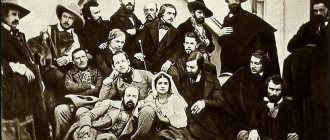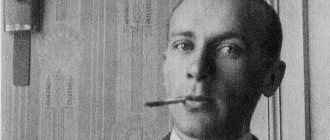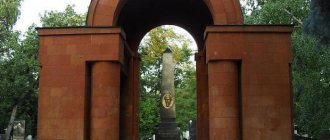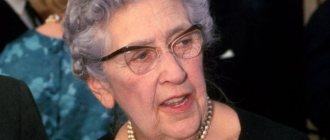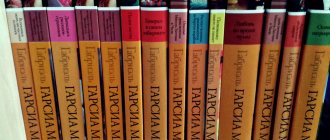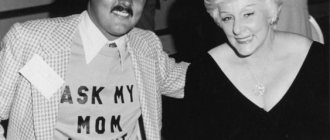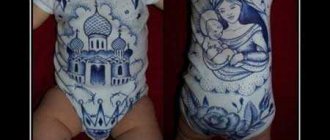If you are interested in some facts from the biography of the greatest Russian writer, quotes from Leo Tolstoy, aphorisms from his works, then I will now tell you step by step, and you will probably stop at what you were looking for.
Lev Nikolaevich Tolstoy is one of the most famous Russian writers. Participant in the defense of Sevastopol. Educator, publicist, thinker. Common ancestor of Leo Tolstoy and A.S. Pushkin was Admiral Ivan Golovin, who helped Peter I create the Russian fleet.
The most famous works of Tolstoy are the novels “War and Peace”, “Anna Karenina”, “Resurrection”, the autobiographical trilogy “Childhood”, “Adolescence”, “Youth”, the stories “Cossacks”, “The Death of Ivan Ilyich”, “Kreutzerova” sonata”, “Hadji Murat”, a series of essays “Sevastopol Stories”, dramas “The Living Corpse”, “Fruits of Enlightenment” and “The Power of Darkness”, autobiographical religious and philosophical works “Confession” and “What is my faith?”.
Wise quotes from Leo Tolstoy
In this chapter I made a selection of the most famous sayings, aphorisms and quotes of Leo Tolstoy by category and topic. Source: “Made in Moldova 2021 - 2021 © Balasanov Andrey Gurgenovich”
I think that many will like the statements of the great writer, perhaps you will take some of them into service and use them when the opportunity arises. Maybe they will serve as a lesson for you; you will agree with some thoughts and refute others.
In any case, the thoughts of a famous intelligent person will not be superfluous. In addition, wise words and quotes from Leo Tolstoy will help you better understand him as a person. And if you like sayings or quotes from any people, write them in the comments, I will be very interested to know.
About kindness, about life
Lev Nikolaevich spoke about kindness as follows: “What a necessary seasoning for everything is kindness. The best qualities are worthless without kindness, and the worst vices are easily forgiven.” “Good is the eternal, highest goal of our life. No matter how we understand good, our life is nothing more than the desire for good.”
“Our good qualities harm us more in life than bad ones.” “Only those who do good live.” “Kindness is for the soul what health is for the body: it is invisible when you own it, and it gives success in every endeavor.” “A good deed is done with effort, but when the effort is repeated several times, the same deed becomes a habit.”
He thought about life like this:
“The shortest expression of the meaning of life can be this: the world moves and improves. The main task is to contribute to this movement, submit to it and cooperate with it.” “To live honestly, you have to struggle, get confused, make mistakes, start and quit... and always struggle and lose. And calmness is spiritual meanness.”
“The benefit of people in life. And life is in work.” “In order to live a good life, there is no need to know where you came from and what will happen in the next world.” “The value of life is inversely proportional to the square of the distance to death.”
“If life does not seem to you to be a great joy, it is only because your mind is misdirected.” “Only then is it easy to live with a person when you don’t consider yourself higher or better than him, or him higher and better than yourself.”
About marriage, education and knowledge
Leo Tolstoy thought about marriage between a man and a woman, about marriage: “One must marry not for love, but certainly with calculation, only understanding these words exactly the opposite of how they are usually understood, that is, to marry not for sensual love and for calculating where and how to live, and based on that calculation, how likely it is that the future wife will help and not interfere with me living a human life.”
Statements by Lev Nikolaevich about education and knowledge:
“Both upbringing and education are inseparable. You cannot educate without passing on knowledge, but all knowledge has an educational effect.” “A teacher needs to know life deeply in order to prepare for it.”
“We know that loaded guns must be handled with care. But we don’t want to know that we must treat words in the same way. The word can kill and make evil worse than death.”
“Don't be afraid of ignorance, be afraid of false knowledge. From him is all the evil of the world.” “Knowledge without a moral basis means nothing.” “Knowledge is a tool, not a goal.” “Knowledge humbles the great, astonishes the ordinary, and inflates the little man.”
About art and love
The great writer and sage thought a lot about art and love: “Art is the highest manifestation of power in man.” “Great objects of art are great only because they are accessible and understandable to everyone.” “A lot is needed for art, but the main thing is fire!” “In art, everything is a little bit.”
“Every discussion about love destroys love.” “Love destroys death and turns it into an empty ghost; it turns life from nonsense into something meaningful and makes happiness out of misfortune.”
"Love? What is love? Love prevents death. Love is life. Everything, everything that I understand, I understand only because I love. Everything is, everything exists only because I love. Everything is connected by one thing. Love is God, and to die means for me, a particle of love, to return to the common and eternal source.”
About people
This extraordinary man imagined the relationship between people in this way: “Is it really cramped for people to live in this beautiful world, under this immeasurable starry sky? Is it really possible that, amid this charming nature, a feeling of malice, revenge, or the passion for exterminating one’s own kind can be retained in a person’s soul?”
“All people live and act partly according to their own thoughts, partly according to the thoughts of other people. One of the main differences between people lies in the extent to which people live according to their own thoughts and how much according to the thoughts of other people.”
“People are often proud of the purity of their conscience only because they have a short memory.” “We must take advantage of every opportunity to bring joy to people, but people should also try to ensure that they are pleased not by trifles, but by important things.”
People who recognize war not only as inevitable, but also as useful and therefore desirable—these people are terrible, terrible in their moral perversity.
“The evil of war and the good of peace are known to people to such an extent that since we have known people, the best wish has been the greeting “peace be with you.” “People differ in that some people think first, then say and do, while others say and do first, and then think.”
About miscellaneous
The world of reflection and torment of the greatest Russian writer and educator is diverse and extraordinary: “He who does nothing always has many helpers.” “The essence of any faith is that it gives life a meaning that is not destroyed by death.” “Power over oneself is the highest power, enslavement to one’s passions is the most terrible slavery.”
“No matter how unpleasant anger is for others, it is more painful for the one who experiences it. What begins in anger ends in shame.” “Children cannot be scared away by severity; they only cannot stand lies.” “A cowardly friend is worse than an enemy, for you fear an enemy, but trust in a friend.”
“If a person did not desire, then there would be no person. The cause of all activity is desire.” “There is only one way to end evil, and that is to do good to evil people.”
The ideal is the guiding star. Without it there is no solid direction, and without direction there is no life.
“It is not beauty that causes love, but love that makes us see beauty.” “You often hear young people say: I don’t want to live in someone else’s mind, I’ll think it over myself. Why should you think about what you have thought about? Take what is ready and move on. This is the strength of humanity.”
“People learn how to speak, but the main science is how and when to remain silent.” “Wisdom in all worldly affairs, it seems to me, consists not in knowing what to do, but in knowing what to do first and what after.”
“There are moments when a man tells a woman more than she should know about him. He said and forgot, but she remembers.” “Short thoughts are good because they force the serious reader to think for himself.”
“Crazy people are always better at achieving their goals than healthy people. This happens because for them there are no moral barriers, no shame, no justice, or even fear.” “Pessimism is stupidity in bad taste. I always want to tell a pessimist: if the world is not for you, don’t flaunt your displeasure, leave it and don’t bother others.”
“If only people believed that strength does not lie in force, but in truth, and would boldly express it.” “When you are betrayed, it’s like having your arms broken. You can forgive, but you will NEVER be able to hug.” “Nine-tenths of the total number of crimes that stain humanity are committed under the influence of wine.” “One of the most common temptations that leads to the greatest disasters is the temptation with the words: “Everyone does it.”
“There are two desires, the fulfillment of which can constitute a person’s true happiness: to be useful and to have a clear conscience.” “Old age is the biggest surprise in life.” “In one smile lies what is called the beauty of the face: if a smile adds beauty to the face, then the face is beautiful; if she does not change it, then it is ordinary; if she spoils it, then it is bad.”
“It’s bad if a person doesn’t have something that he’s willing to die for.” “Whoever has learned to think finds it difficult to believe.” “Have a goal for your whole life, a goal for a certain time, a goal for the year, for the month, for the week, for the day, and for the hour, and for the minute, sacrificing the lower goals to the higher.”
And all religions are superstitions, the very evil that most hinders the development of humanity
Lev Tolstoy. Quotes and aphorisms about religion and church
***
And if any person tries to remind people that the teaching of Christ is not in these sorceries, not in prayers, masses, candles, icons, but in the fact that people love each other, do not pay evil for evil, do not judge, do not kill each other, then a groan of indignation will rise from those who benefit from these deceptions...
***
The fact that I renounced the church that calls itself Orthodox is completely fair. But I renounced it not because I rebelled against the Lord, but on the contrary, only because I wanted to serve him with all the strength of my soul.
***
There is no complete freedom, but a person approaches freedom as he unites his mind and love with God.
***
If a savage has stopped believing in his wooden god, this does not mean that there is no God, but only that God is not wooden.
***
The beginning of everything was the understanding of life. And the understanding of life became for God.
***
It is impossible to prove to those who believe in the trinity of God that this does not exist, but it is possible to show them that their assertion is not an assertion of knowledge, but of faith, that if they assert that there are three gods, then I can with the same right assert that there are 17 1 /2.
***
The essence of any faith is that it gives life a meaning that is not destroyed by death.
***
Rousseau and the Gospel are the two most powerful and beneficial influences on my life. Rousseau doesn't age. Just recently I had to re-read some of his works, and I felt the same sense of uplift and admiration that I felt when reading him in my early youth.
***
Yesterday, a conversation about the divine and faith brought me to a great, enormous thought, the implementation of which I feel able to devote my life to. This thought is the foundation of a new religion, corresponding to the development of humanity, the religion of Christ, but purified from faith and mystery, a practical religion that does not promise future bliss, but gives bliss on earth.
***
Church. This whole word is the name of deception, through which some people want to rule over others.
***
And all religions are superstitions, the very evil that most hinders the development of humanity.
Digging into our souls, we often unearth things that would lie there unnoticed. "Anna Karenina"
Brief biography of the writer
Lev Nikolaevich Tolstoy was born on the Yasnaya Polyana estate, located in the Tula province, on September 9 (August 28, O.S.), 1828. Being the fourth child in the family of Count N.I. Tolstoy and Princess M.N. Volkonskaya, Lev was left an orphan early and was raised by a distant relative T. A. Ergolskaya. Childhood years remained in the memory of Lev Nikolaevich as a happy time.
Together with his family, 13-year-old Tolstoy moved to Kazan, where his relative and new guardian P.I. lived. Yushkova. After receiving home education, Tolstoy became a student at the Faculty of Philosophy (Department of Oriental Languages) at Kazan University. Studying within the walls of this institution lasted less than two years, after which Tolstoy returned to Yasnaya Polyana.
In the fall of 1847, Leo Tolstoy moved first to Moscow, and later to St. Petersburg to take university candidate exams. These years of his life were special, priorities and hobbies replaced each other like in a kaleidoscope. Intense study gave way to carousing, gambling at cards, and a passionate interest in music.
Tolstoy either wanted to become an official, or saw himself as a cadet in a horse guards regiment. At this time, he incurred a lot of debts, which he managed to pay off only after many years. Nevertheless, this period helped Tolstoy better understand himself and see his shortcomings. At this time, for the first time he had a serious intention to engage in literature, he began to try himself in artistic creativity.
Four years after leaving the university, Leo Tolstoy succumbed to the persuasion of his older brother Nikolai, an officer, to leave for the Caucasus. The decision did not come immediately, but a large loss in cards contributed to its adoption. In the fall of 1851, Tolstoy found himself in the Caucasus, where for almost three years he lived on the banks of the Terek in a Cossack village.
Subsequently, he was accepted into military service and participated in hostilities. During this period, the first published work appeared: the Sovremennik magazine published the story “Childhood” in 1852. It was part of a planned autobiographical novel, for which the stories “Adolescence” (1852-1854) and composed in 1855-1857 were subsequently written. "Youth"; Tolstoy never wrote the “Youth” part.
Having received an appointment in Bucharest, in the Danube Army, in 1854, Tolstoy, at his personal request, was transferred to the Crimean Army, fought as a battery commander in besieged Sevastopol, receiving medals and the Order of St. for valor. Anna. The war did not prevent him from continuing his studies in the literary field: it was here that he was written throughout 1855-1856. “Sevastopol Stories” were published in Sovremennik, which had enormous success and secured Tolstoy’s reputation as a prominent representative of the new generation of writers.
In the fall of 1856, he retired and after a short stay in Yasnaya Polyana, he went abroad in 1857, but in the fall of that year he returned to Moscow, and then to his estate. Disappointment in the literary community, social life, dissatisfaction with creative achievements led to the fact that in the late 50s. Tolstoy decides to leave writing and gives priority to activities in the field of education.
Returning to Yasnaya Polyana in 1859, he opened a school for peasant children. This activity aroused such enthusiasm in him that he even made a special trip abroad to study advanced pedagogical systems. In 1862, the count began publishing the Yasnaya Polyana magazine with pedagogical content with supplements in the form of children's books for reading.
Educational activities were suspended due to an important event in his biography - his marriage in 1862 to S.A. Bers. After the wedding, Lev Nikolaevich moved his young wife from Moscow to Yasnaya Polyana, where he was completely absorbed in family life and household chores. Only in the early 70s. he will briefly return to educational work, write “The ABC” and “The New ABC.”
In the fall of 1863, he conceived the idea of a novel, which in 1865 would be published in the Russian Bulletin as “War and Peace” (the first part). The work caused a huge resonance; the skill with which Tolstoy painted a large-scale epic canvas, combining it with amazing accuracy with psychological analysis, and inscribed the private lives of the heroes into the outline of historical events did not escape the public.
Lev Nikolaevich wrote the epic novel until 1869, and during 1873-1877. worked on another novel that was included in the golden fund of world literature - Anna Karenina. Both of these works glorified Tolstoy as the greatest artist of the word, but the author himself in the 80s. loses interest in literary work. A very serious change occurs in his soul and in his worldview, and during this period the thought of suicide comes to him more than once.
The doubts and questions that tormented him led to the need to begin with the study of theology, and works of a philosophical and religious nature began to appear from his pen: in 1879-1880 - “Confession”, “Study of Dogmatic Theology”; in 1880-1881 — “Connection and translation of the Gospels,” in 1882-1884. - “What is my faith?” In parallel with theology, Tolstoy studied philosophy and analyzed the achievements of the exact sciences.
Outwardly, the change in his consciousness manifested itself in simplification, i.e. in refusing the opportunities of a prosperous life. The Count dresses in common clothes, refuses food of animal origin, the rights to his works and his fortune in favor of the rest of the family, and works a lot physically.
His worldview is characterized by a sharp rejection of the social elite, the idea of statehood, serfdom and bureaucracy. They are combined with the famous slogan of non-resistance to evil by violence, the ideas of forgiveness and universal love.
The turning point was also reflected in Tolstoy’s literary work, which takes on the character of denouncing the existing state of affairs with a call on people to act according to the dictates of reason and conscience. His stories “The Death of Ivan Ilyich”, “The Kreutzer Sonata”, “The Devil”, dramas “The Power of Darkness” and “Fruits of Enlightenment”, and the treatise “What is Art?” belong to this time.
Eloquent evidence of a critical attitude towards the clergy, the official church and its teachings was the novel “Resurrection” published in 1899. Complete divergence from the position of the Orthodox Church resulted in Tolstoy’s official excommunication from it; this happened in February 1901, and the decision of the Synod led to a loud public outcry.
At the turn of the 19th and 20th centuries. In Tolstoy’s artistic works, the theme of cardinal life changes and departure from the previous way of life prevails (“Father Sergius”, “Hadji Murat”, “The Living Corpse”, “After the Ball”, etc.). Lev Nikolaevich himself also came to the decision to change his way of life, to live the way he wanted, in accordance with his current views.
At the age of 82, secretly from his household, on an autumn night in 1910, Tolstoy left Yasnaya Polyana; his companion was his personal physician Makovitsky. On the way, the writer was overtaken by illness, as a result of which they were forced to get off the train at Astapovo station. Here he was sheltered by the station chief, and the last week of the life of a world-famous writer, known among other things as a preacher of a new teaching and a religious thinker, passed in his house.
The whole country monitored his health, and when he died on November 10 (October 28, O.S.), 1910, his funeral turned into an event of an all-Russian scale.
On November 10 (23), 1910, L. N. Tolstoy was buried in Yasnaya Polyana, on the edge of a ravine in the forest, where as a child he and his brother were looking for a “green stick” that held the “secret” of how to make all people happy. When the coffin with the deceased was lowered into the grave, everyone present reverently knelt.
About knowledge
It is better to know a little truly good and necessary than a lot of mediocre and unnecessary things.
"Reading Circle"
Knowledge is only knowledge when it is acquired through the efforts of one’s thoughts, and not through memory.
"Reading Circle"
A thought only moves life when it is obtained by one’s own mind or even when it answers a question that has already arisen in the soul. An alien thought, perceived by the mind and memory, does not influence life and gets along with actions that are contrary to it.
"Reading Circle"
A scientist is one who knows a lot from books; educated - one who has mastered all the most common knowledge and techniques of his time; enlightened - one who understands the meaning of his
life.
"Reading Circle"
Teach useful things
Tolstoy was critical of the way the educational process was structured in 19th-century Russia. He was indignant that in order to obtain a certificate, students had to cram theory, which was then impossible to apply in the profession. Latin, philosophy, and church sciences seemed archaic to the writer. In his opinion, knowledge that will be useful in life is much more important, and students have the right to independently choose what to study.
Don't punish
Tolstoy was an ardent opponent of violence: he categorically stated that there could be no rods in school, and a student should not be punished for unlearned lessons. The abolition of any punishment in the Yasnaya Polyana school was an innovation for the 19th century. Contemporaries doubted whether such a technique could be effective and argued: “All this is very fair, but you must agree that sometimes it is impossible without a rod and that sometimes you have to force them to learn by heart.”
Develop imagination
Upbringing and education is not just about studying textbooks. The writer noted that the formation of a child’s personality is influenced by everything that surrounds him: “children’s games, suffering, parental punishment, books, work, forced and free teaching, arts, sciences, life - everything shapes.” By exploring the world, the child develops imagination and creativity. Tolstoy considered it a huge mistake to teach according to a clear methodology, instead of just guiding the child in studying the world in all its diversity.
Resolve grievances
At the Yasnaya Polyana school, in addition to lessons, conversations were often held. At these meetings, teachers and students discussed everything they considered important: scientific issues, news, the educational process. Students could express their point of view and even criticize teachers. The free upbringing that Tolstoy praised implied honest and open conversation.
Learn clearly
Liberal education was unacceptable in 19th-century gymnasiums or universities, where students were forced, sometimes under pain of corporal punishment, to learn their lessons by heart. Tolstoy built the educational process without forcing education and strove to teach in such a way that the child would enjoy it. The writer collected the main advice for teachers in the brochure “General Notes for Teachers,” where he recommended closely observing the mental and physical state of students, and instead of dry terms, presenting impressions to the children.
About a human
People are like rivers: the water is the same in everyone and the same everywhere, but each river is sometimes narrow, sometimes fast, sometimes wide, sometimes quiet. So are people. Each person carries within himself the beginnings of all human properties and sometimes displays some, sometimes others, and is often completely unlike himself, remaining one and himself.
"Resurrection"
My whole idea is that if vicious people are connected with each other and constitute a force, then honest people need to do only the same.
"War and Peace". Epilogue. 1863–1868
II
Semyon approaches the man, looks at him and sees: the man is young, strong, there are no signs of beatings on his body, it is only clear that the man is frozen and scared; he sits leaning and doesn’t look at Semyon, as if he’s weak and can’t raise his eyes. Semyon came close, and suddenly the man seemed to wake up, turn his head, open his eyes and look at Semyon. And from this glance Semyon fell in love with the man. He threw his felt boots to the ground, unfastened his belt, put the belt on his felt boots, and took off his caftan.
“He will,” he says, “interpret something!” Put some clothes on, or something! Come on!
Semyon took the man by the elbow and began to lift him up. A man stood up. And Semyon sees a thin, clean body, unbroken arms and legs, and a touching face. Semyon threw the caftan over his shoulders - it wouldn’t get into his sleeves. Semyon tucked his hands, pulled on and wrapped his caftan and pulled it up with a belt.
Semyon took off his torn cap and wanted to put it on the naked man, but his head felt cold, he thought: “I’m bald all over my head, but his temples are curly and long.” Put it on again. “It’s better to put boots on him.”
He sat him down and put felt boots on him.
The shoemaker dressed him and said:
- That's right, brother. Come on, warm up and warm up. And these cases will all be sorted out without us. Can you go?
A man stands, looks tenderly at Semyon, but cannot say anything.
- Why don’t you say so? Don't spend the winter here. We need housing. Come on, here’s my baton, lean on it if you’re weak. Rock it!
And the man went. And he walked easily, he didn’t lag behind.
They walk along the road, and Semyon says:
- Whose, then, will you be?
- I'm not from here.
- I know people around here. So how did you end up here, under the chapel?
- You can't tell me.
— People must have offended you?
- Nobody offended me. God punished me.
“We know everything is God, but we still have to get somewhere.” Where do you need to go?
- I don’t care.
Semyon marveled. He doesn’t look like a mischievous person and is soft-spoken and doesn’t talk to himself. And Semyon thinks: “You never know what happens,” and says to the man:
- Well, then let’s go to my house, at least you’ll move away a little.
Semyon is walking, the wanderer is not far behind him, walking next to him. The wind rose, caught Semyon under his shirt, and the hops began to drain from him, and he began to vegetate. He walks, sniffs with his nose, wraps his woman’s jacket around himself and thinks: “That’s a fur coat, I went to get a fur coat, but I’ll come without a caftan and even bring him naked. Matryona won’t praise you!” And when he thinks about Matryona, Semyon will become bored. And when he looks at the wanderer, remembers how he looked at him behind the chapel, his heart will leap within him.
About faith
True religion is such an attitude established by a person to the infinite life around him, which connects his life with this infinity and guides his actions.
"Reading Circle"
The essence of any religion lies only in the answer to the question: why do I live and what is my relationship to the endless world around me? There is not a single religion, from the most sublime to the crudest, that would not be based on this establishment of the relationship of man to the world around him.
"Reading Circle"
Faith is the understanding of the meaning of life and the recognition of the responsibilities arising from this understanding.
"Reading Circle"
People live by love; self-love is the beginning of death, love for God and people is the beginning of life.
"Reading Circle"
